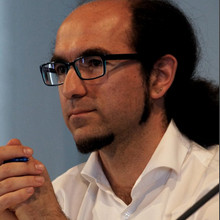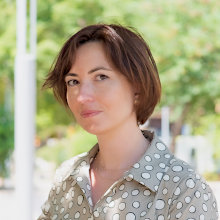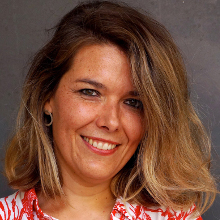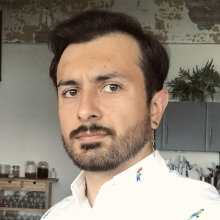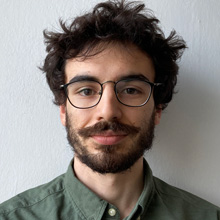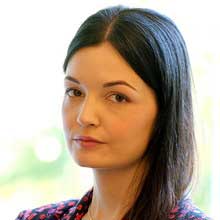Group
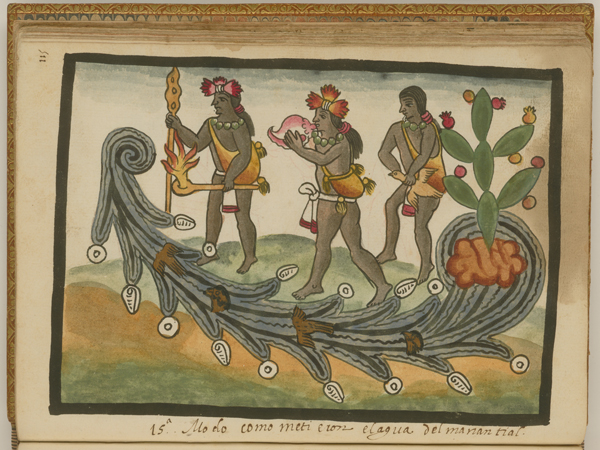
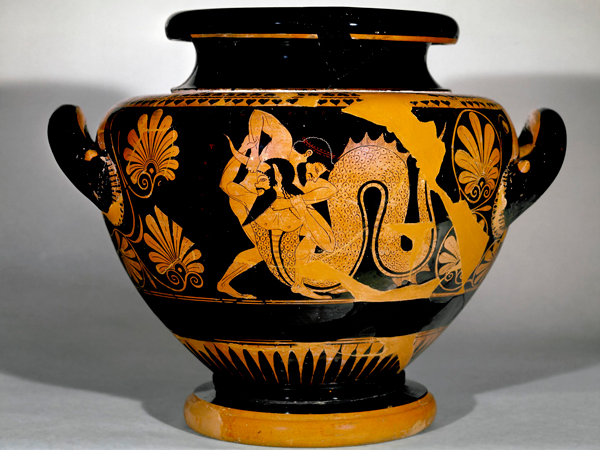
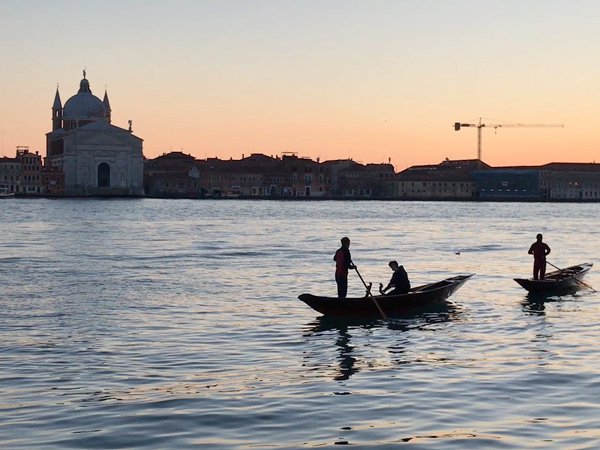
Pietro Daniel Omodeo is a cultural historian of science and a professor of historical epistemology at the Department of Philosophy and Cultural Heritage - Ca’ Foscari University of Venice. His main areas of inquiry are Anthropocene philosophy, the material history of science in the longue durée, the cultural history of cosmology and the politics of epistemology. He is the author of "Political Epistemology: The Problem of Ideology in Science Studies" (2019). He co-edited, with C. Baldacci, S. Bassi and L. De Capitani, "Venice and the Anthropocene: An Ecocritical Guide" (2022) and is the editor of two journal special issues on geoanthropology:
- with T. Asmussen, "Early Modern Geological Agency", in "Earth Science History" 39/2 (2020);
- with R. Garau and G. Rispoli, "Historical Geoanthropology", in the "Journal for the Interdisciplinary History of Ideas" 11/22 (2022).
He is the principal investigator of the FARE project EarlyGeoPraxis, funded by the Italian Ministry of University and Research. He also leads the Max Planck Partner Group in Venice The Water City on Anthropocene Venice and the Waterscapes Unit at NICHE Centre for Environmental Humanities in Venice.
Corinna Guerra is Assistant Professor in History of Science and Technology at Ca’ Foscari University of Venice, where she teaches “Philosophy and Politics of Life and the Environment” and she is Associate Researcher of the Laboratoire d’Excellence HASTEC (History and Anthropology of Knowledge,Technologies and Beliefs), France and the GHDSO at the Paris-Saclay University. Her research focus is on the chemistry of the 18th century, natural disasters and the relationship between geochemical peculiarities of a territory and the evolution of scientific disciplines. Her first book "Lavoisier e Parthenope" (Naples 2017) was awarded the Prize for Young Historians by the International Academy of the History of Science. She has been appointed among the 100 Italian (women) Experts for the History and Philosophy Area 100esperte.it [ITA].
Cristina Baldacci is an Associate Professor in History of Contemporary Art at Ca’ Foscari University of Venice, where she is also affiliated with NICHE Centre for Environmental Humanities. At NICHE she is the PI of the Ecological Art Practices research cluster. Her research interests focus on archiving and collecting as art practices; reenactment and other ‘re-’ strategies in contemporary arts and theory; art and Climate Change; archives and the Anthropocene – all topics on which she has extensively published (see, among others, the monograph "Archivi impossibili: Un’ossessione dell’arte contemporanea", 2016; the co-edited volumes "Over and Over and Over Again: Reenactment Strategies in Contemporary Arts and Theory", 2022; "On Reenactment: Concepts, Methodologies, Tools", 2022; the co-edited double issue of “Holotipus” journal on A"rchiving the Anthropocene: New Taxonomies Between Art and Science", 2023-2024). She is currently doing research for a new book on how to rethink (cultural and natural) archives and systems of classification, between art and science, in relation to the urgent questions raised by the environmental crisis. Her last publication: Baldacci, C. (2023), “An Archipelago of Ecological Care: Venice, Its Lagoon, and Contemporary Art", "Lagooscapes. The Venice Journal of Environmental Humanities", 3(2), pp. 1-14; doi 10.30687/LGSP/2785-2709/2023/01/000; e-ISSN 2785-2709.
Emiliano Guaraldo is a postdoctoral research fellow at NICHE Centre for Environmental Humanities, Ca’ Foscari University of Venice. He has obtained a PhD in Italian Studies at the University of North Carolina, Chapel Hill, in 2019 with a dissertation on the visual and literary imaginations of petroleum in the Italian context. Together with Marco Malvestio and Daniel Finch-Race, he is editing the forthcoming volume "Italian Science Fiction and the Environmental Humanities" (Liverpool University Press, 2023). With Cristina Baldacci, he is the co-editor of the special double issue of “Holotipus” journal "Archiving the Anthropocene. New Taxonomies between Art and Science" (2023). He is a member of the Ecological Art Practices research cluster at NICHE and of Unruly Natures (University of St. Gallen). His work aims at understanding the historical, aesthetic, and political dimensions of extractivism and toxicity within the transmedial imaginations of the Anthropocene.
Erasmo Castellani is a research fellow at Ca' Foscari University, working on the Cariplo foundation project: 'The Emergence of Risk Society: Managing Danger and Uncertainty in Early Modern Venice.' He earned his PhD in History at Duke University, working on questions of empires, sovereignty and subjecthood in the Early Modern Mediterranean. His prior experience includes work on legal anthropology, practices of governance, political communication, and epistemic practices in Venice and its territories between the 16th and the 19th centuries through extensive archival research in Italy, Greece, Croatia, Montenegro, Slovenia, and American collections. He has worked on digital humanities projects, organizing a database of Venetian petitions ("Voices from Istria", co-sponsored by Ca' Foscari and Primorska University, Koper) and collaborating with the Venice Interactive Visual Atlas (VIVA) project at Duke. His current research focuses on the interplay of social micro-management with the imperial politics of the Venetian Republic. In his book project, "The Power that Restrains: Negotiating Sovereignty Through Petitions in the Venetian Stato da Mar," he argues that Venetian imperial sovereignty was actually made by a myriad of particular interests that express the geopolitical complexities of Venice’s diverse subject populations.
Francesca Melina is a PhD student in the Sustainable Development and Climate Change joint program between IUSS Pavia and Ca' Foscari University of Venice. She is working on a project that considers the possibility of seeing art as a trans/multidisciplinary reflexive practice that acts directly on the social fabric and produces political, epistemological and gnoseological transformations. Thus, conceived as a (collective) practice that could produce commons and promote an ethics of proximity and care in relation to issues of global warming. Francesca is interested in the construction of a phenomenology of art practice that investigates the relationship between art and capitalism, art and science, and art and politics, with a further attention to ethics.
Giovanni Fava is PhD candidate in Philosophy at University Ca’ Foscari of Venice, where he is working on a project devoted to the philosophical and epistemological aspect of the concept of the Anthropocene while trying to develop its political implications. His research deals with the problems of multitemporality, agency, the relationship between human and natural history, and eco-marxism. Giovanni’s interests span the philosophy of nature, political ecology, cultural anthropology, and contemporary French philosophy, with special reference to Maurice Merleau-Ponty, of which he is – together with Riccardo Valenti – Italian translator ("L’istituzione, la passività. Note del Corso al Collège de France, 1954-1955", Mimesis, Milano-Udine, 2023).
Giulia Gandolfi: is a PhD student at Ca' Foscari University in Venice and at University Panthéon Sorbonne in Paris. During her studies in Venice, as part of a research group in political epistemology, she focused on the emergence of science from the historical context of human praxis, especially in medical areas. In Paris, as a member of the HIPHIMO group, her work is centered on Georges Canguilhem’s concept of vital normativity. Her research on Canguilhem analyzes the idea of knowledge production in medicine and biology as a pivotal moment for the biopolitical management of health.
Francesco Luzzini is Marie Skłodowska-Curie Global Fellow at Ca’ Foscari University. His research focuses on the Earth and environmental sciences, natural philosophy, and medicine in early modern Europe, with important forays into modern and contemporary contexts. His project SOUNDEPTH aims to understand how the early modern debate on mineral generation influenced natural philosophy, the Earth sciences, and the role of humans as geological and environmental agents. Francesco is Contributing Editor for the Isis Bibliography of the History of Science and Co-editor of the journal Il Protagora. His previous affiliations include the Max Planck Institute for the History of Science (MPIWG Berlin), Johns Hopkins University, the University of Oklahoma, Radboud University Nijmegen, the Linda Hall Library in Kansas City. At Ca’ Foscari, he collaborates with the Max Planck Partner Group “The Water City,” the UNESCO Chair “Water Heritage and Sustainable Development,” and NICHE Centre for Environmental Humanities. Among his recent books are Quando il mondo scalò il Sublime (MuSe 2022); Theory, Practice, and Nature In-between (Edition Open Sources 2018).
Heiner Krellig is an art historian, who has obtained his doctorate under the supervision of Prof. Wolfgang Wolters at the Institut für Kunstwissenschaft of Technische Universität Berlin with a thesis on Venetian veduta painting, entitled "Menschen in der Stadt. Darstellungen städtischen Lebens auf venezianischen Veduten". After having obtained scholarships at the Deutsches Studienzentrum in Venedig/Centro Tedesco di Studi Veneziani, as well as from the DAAD, he was researcher of the National Inventory Research Project (NIRP) at Glasgow Museums, and he has taught History of Art, History of Fashion, Photography and Graphic Arts at LetteVerein – Fachschule für Mode- Foto-, Grafikdesign, Berlin, in the lifelong-learning program of Freie Universität Berlin, and later at Universität Bamberg. He has collaborated with various international museum institutions, especially the Stiftung Preußische Schlösser und Gärten Berlin Brandenburg (Prussian Palaces and Gardens Foundation). Besides his specialisation in Venetian art history, he has always nourished a profound interest in the history of gardens and the theory of conservation of monuments, as well as gardens and nature. Indeed, in 2013–2014, he was the Project Manager of the pioneering, transdisciplinary research project "Historische Gärten im Klimawandel/Historic Gardens and Climate Change", funded by the German BUND e. V. (Friends of the Earth Germany). Since 2021 he is collaborating to the Max Planck Partner Group "The Water City - Political Epistemology of Hydrogeological Practice".
Justas Patkauskas is a Marie Skłodowska-Curie Postdoctoral Fellow at Ca’ Foscari University of Venice. He conducts interdisciplinary research at the intersection of speculative philosophy, concept history, and social theory. Working in the tradition of historical epistemology, he is broadly concerned with the ontology and epistemology of knowledge-making in modernity. His research interests include immanence theory, knowledge ecosystems, and the Anthropocene. Specific topics concern biopolitics, cybernetics and Earth system science.
is a PhD student in the Sustainable Development and Climate Change joint program between IUSS Pavia and Ca' Foscari University of Venice. Her research explores the cultural experience of water through labour, with a particular focus on artisanal fishing in the Venice Lagoon as a case study to investigate political epistemology from below. She interrogates the concepts of heritage, commons, and labour from a diachronic perspective, aiming to valorize traditional, practical, community-based knowledge in shaping a more sustainable relationship with the environment and its inhabitants. As part of her project, she is collaborating with VeGAL (Eastern Veneto Development Agency) to support the candidacy of artisanal fishing for inclusion on the UNESCO Intangible Cultural Heritage list.
Krešimir Vuković obtained a doctorate in Classics at the University of Oxford. He was Lecturer at Oxford’s Faculty of Classics, Rome Fellow of the British School at Rome and Alexander von Humboldt Fellow at LMU Munich. He is strongly interested in environmental humanities and ecocriticism and ways in which they can provide valuable lessons in current global crises. At NICHE, he is studying the fluvial environment of the Venetian lagoon in late antiquity and writing a book entitled "The Living Streams: Rivers as More-than-Human Entities in the Ancient World" for the series Cambridge Elements in Environmental Humanities (Cambridge University Press). He is also a specialist in Roman religion and mythology and has published widely on these topics in journals and edited volumes (OUP, CUP). He has recently published the book "Wolves of Rome: The Lupercalia from Roman and Comparative Perspectives" (Walter de Gruyter, 2023) on the role of non-human animals in Rome’s most enduring festival.
Noemi Quagliati is a Marie Skłodowska-Curie Postdoctoral Fellow at Ca’ Foscari University of Venice, where she leads the project “Bird’s-Eye Views of the Venetian Lagoon. Planetary Visions and Birdscapes of an Aquatic Ecosystem”. She is part of the program GLOBAL_AT_VENICE - Research and Training for Global Challenges and is affiliated with NICHE Centre for Environmental Humanities. Noemi received a PhD in art history from Ludwig Maximilian University of Munich and the Rachel Carson Center for Environment and Society on the subject of landscape photography in WWI Germany. Before joining Ca’ Foscari, she lectured on German eco-aesthetics at the Junior Year in Munich program (LMU and Wayne State University) and taught courses on North American photography and art at LMU’s Amerika-Institut. Over the past few years, she has been a visiting researcher at the University of California, Berkeley, the University of Georgia, the Research Institute for the History of Science and Technology of the Deutsches Museum, and the KTH Environmental Humanities Laboratory. Noemi is the co-organiser of the conference “Planetary Waters: A Challenge between Abstraction and Empathy” hosted by the German Maritime Museum/Leibniz Institute of Maritime History (DSM) in Bremerhaven.
Omar Rodríguez is a historian and philosopher of science interested in the introduction and development of European thought, mainly Renaissance humanism, in the Ibero-American multicultural world. More specifically, he recovers the complex interrelationships between natural, religious and political notions in the conceptualization of the skies and territories in the Americas, especially in New Spain. At the same time, he has studied the history of civil engineering in Mexico, analysing the different interests behind public works. Currently, his research focuses on the study of the particularities of knowledge and practices in multicultural societies and its implications for their environments. He has recently written "Transformation and Persistence of the Basin-Valley of Mexico in the 16th and 17th Centuries". He collaborates with NICHE Centre for Environmental Humanities and with the "Water City Project. The Political Epistemology of Hydrogeological Praxis". He is beginning a postdoctoral fellowship on "The Dispute for the Environment in the Valley of Mexico" within the FARE project "EarlyGeoPraxis" in Ca' Foscari University of Venice.
Pietro Consolandi is a researcher and artist based in the lagoon of Venice, where he co-founded the Barena Bianca collective in 2018. He is a research fellow at NICHE (Ca’ Foscari University of Venice), where he studies the Rights of Nature legal framework and its potential application for Venice, also in concert with other European water bodies, such as the Mar Menor. He is OCEAN / UNI Research Lead at TBA21-Academy, having been involved with the foundation since 2020 after taking part in the first Ocean Fellowship.
Xenia Chiaramonte is a jurist and socio-legal scholar. She has mainly worked on environmental struggles and legal tools both from the perspective of a critique of penal governmentality of dissent and for the advancement of a legal imagination up to new social needs and contemporary climate breakdown. She’s the author of "Governare il conflitto: la criminalizzazione del movimento No Tav" [ITA] (Milan, 2019). She has extensively published in international journals, and her most recent lines of research delve into new forms of social institutions, a reading of praxis beyond the agency typical of neo-materialist positions, and a critique of the use of nature in contemporary ecological discourse. Presently, Xenia holds the position of a postdoctoral researcher in the FARE project. She is also an affiliated fellow at ICI BERLIN, where she is co-editing the forthcoming book "Reducing Climate/Legal Imagination for Gaia" with Sarath Jakka. This year marks the opening of the summer school she co-curates entitled "Politiche della biodiversità" funded by the Italian Institute of Philosophical Studies.
Amalia Rossi, sociologist and anthropologist, is Fellow Researcher at NICHE, within the research program titled “Interazione tra il buddismo e l'ambiente nel mondo moderno nel contesto dell'ecologia spirituale o religiosa”, directed by Professor Francesca Tarocco and co-funded by Unione Buddista Italiana. She earned her PhD in Cultural Anthropology at the University of Milan Bicocca and teaches Cultural Anthropology (B.A. in Painting and Visual arts) and Land Design-Ecosophy (Master in Art and Ecology) at the Nuova Accademia di Belle Arti of Milan (NABA). Amalia published widely in Italian and English in the fields of contemporary Buddhist studies, political ecology and the anthropology of social movements. She also worked for several years for EU agencies, GOs and NGOs in the field of international protection. In 2022 she published the monography: Eco-buddhismo. Monaci della foresta e paesaggi contesi in Thailandia (Meltemi Editore, Milano).
Meital Shai is an art and architecture historian specializing in the intersections of art, science, and philosophy in Early Modern Veneto, with a particular focus on the history of astronomy and hydraulic engineering. She holds a Ph.D. in Theories and History of the Arts from the joint doctorate school of VIU, SSAV, Ca’ Foscari, and Iuav universities of Venice. Currently, she is a research fellow at Ca’ Foscari University, within the Department of Philosophy and Cultural Heritage. Her research explores the environmental circumstances that influenced the production of Venice's artistic heritage and its mainland territories. She has written on art historical methodology, addressing the limitations of reception theory and emphasizing the value of microhistory. Her recent publications include The Cosmos at Home: The Fresco Cycle of Villa Grimani Molin at Fratta Polesine (Zamorani, Turin 2019) and the article “Faith in Science Triumphant: An Eclipse in Villa Barbaro at Maser” (Artibus et Historiae, 2021). Currently, her research investigates the hydraulic history of the Meolo River in the sixteenth century, as a means for examining the political and social factors that shaped the success and failure of the Republic’s water management endeavors.

